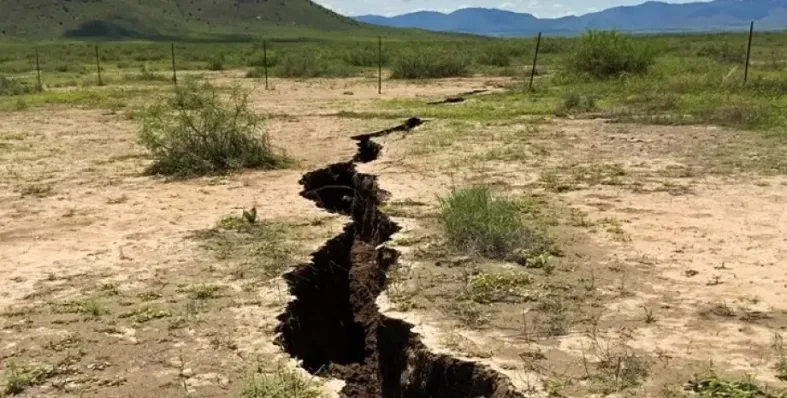AI predicts earthquakes with unprecedented accuracy
- August 20, 2024
- 0
Researchers at the University of Texas have developed an AI that predicted 70% of earthquakes in tests in China, suggesting that the risk of future earthquakes could be
Researchers at the University of Texas have developed an AI that predicted 70% of earthquakes in tests in China, suggesting that the risk of future earthquakes could be

Researchers at the University of Texas have developed an AI that predicted 70% of earthquakes in tests in China, suggesting that the risk of future earthquakes could be reduced. The AI trained on seismic data also won first place in an international competition, underscoring its effectiveness and opening the door to further improvements in regions such as California and Texas.
A new attempt to predict earthquakes using artificial intelligence has raised hopes that the technology could one day be used to limit the impact of earthquakes on lives and economies. An artificial intelligence algorithm developed by researchers at the University of Texas at Austin correctly predicted 70 percent of earthquakes a week before they occurred during a seven-month trial in China.
The AI was trained to detect statistical irregularities in real-time seismic data, which researchers correlated with previous earthquakes. The result was a one-week forecast in which the AI successfully predicted 14 earthquakes about 200 miles from where it predicted them, with magnitudes nearly accurate. It missed one earthquake and issued eight false alerts.
It’s not yet known whether the same approach will work elsewhere, but the effort is a significant milestone in AI-based earthquake prediction research.
“Earthquake prediction is the holy grail,” said Sergey Fomel, a professor at UT’s Bureau of Economic Geology and a member of the research team. “We’re not even close to making predictions for any part of the world, but what we’ve achieved shows us that a problem we thought was impossible is, in principle, solvable.”
The test was part of an international competition held in China, where the AI developed by UT won first place among 600 other projects. The UT record was led by Yangkan Chen, a seismologist and chief AI developer at the bureau. The results of the research were published in the journal Bulletin of the Seismological Society of America.
“You don’t see the earthquakes,” said Alexandros Savvaidis, a senior scientist who heads the Texas Seismological Network (TexNet) Program, the state’s seismological network. “It’s a matter of milliseconds, and the only thing you can control is how prepared you are. This is a huge outcome that could help minimize economic and human losses by even 70% and has the potential to significantly improve earthquake preparedness worldwide.”
The researchers said their method succeeded by following a relatively simple machine learning approach. The AI was given a set of statistical features based on the team’s knowledge of earthquake physics and then asked to train on a five-year database of seismic records.
After training, the AI made its prediction by listening for signs of future earthquakes amidst background noise on Earth.
“We are very proud of this team and their first-place finish in this prestigious competition,” said office manager Scott Tinker. “Of course, it’s not just about location and scale, it’s about time. Earthquake prediction is a difficult problem to solve, and we can’t take that challenge lightly.”
In places with strong seismic monitoring networks, such as California, Italy, Japan, Greece, Turkey and Texas, researchers are confident that AI can increase the success rate and narrow their estimates to within a few tens of kilometers.
One of the next steps is to test the AI in Texas, because the state is prone to low- to moderate-magnitude earthquakes. The bureau’s TexNet includes 300 seismic stations and more than six years of continuous recording, making it an ideal place to test the method.
Eventually, the researchers want to integrate the system with physics-based models, which could be important in places where data is scarce or in places like Cascadia, where the last major earthquake occurred hundreds of years before seismographs recorded it.
“Our future goal is to combine both physics and data-driven techniques to deliver something generalizable like chatGPT that we can apply anywhere in the world,” Chen said.
The new study is an important step toward this goal.
“It may be a long way off, but many advances like this, when taken together, move science forward,” Tinker said.
Source: Port Altele
As an experienced journalist and author, Mary has been reporting on the latest news and trends for over 5 years. With a passion for uncovering the stories behind the headlines, Mary has earned a reputation as a trusted voice in the world of journalism. Her writing style is insightful, engaging and thought-provoking, as she takes a deep dive into the most pressing issues of our time.